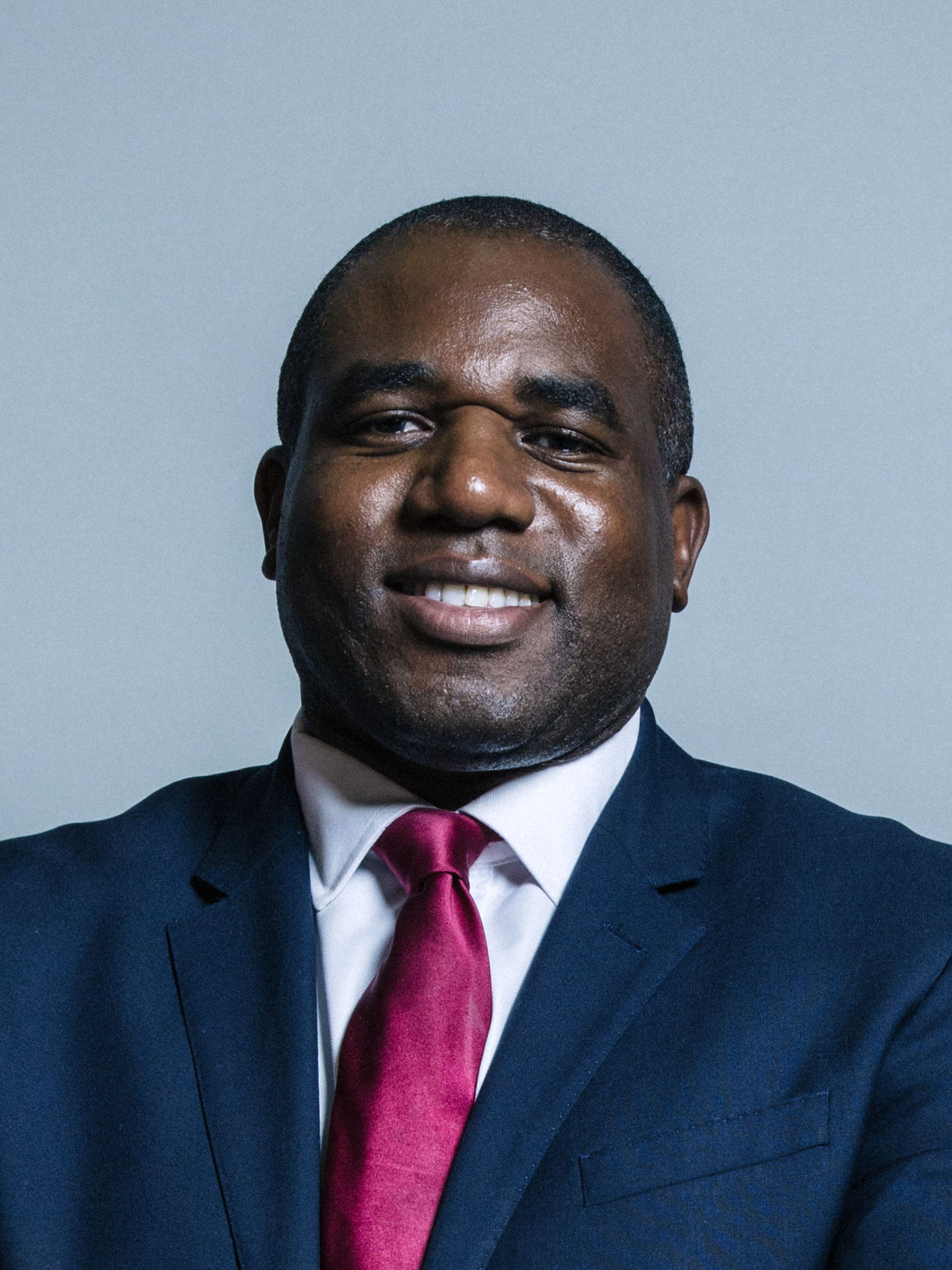Ministry of Justice
The Ministry of Justice is a major government department, at the heart of the justice system. We work to protect and advance the principles of justice. Our vision is to deliver a world-class justice system that works for everyone in society.
Shadow Ministers / Spokeperson
Liberal Democrat
Lord Marks of Henley-on-Thames (LD - Life peer)Liberal Democrat Lords Spokesperson (Justice)
Green Party
Siân Berry (Green - Brighton Pavilion)Green Spokesperson (Justice)
Liberal Democrat
Jess Brown-Fuller (LD - Chichester)Liberal Democrat Spokesperson (Justice)
Conservative
Nick Timothy (Con - West Suffolk)Shadow Secretary of State for Justice
Junior Shadow Ministers / Deputy Spokesperson
Conservative
Lord Keen of Elie (Con - Life peer)Shadow Minister (Justice)
Kieran Mullan (Con - Bexhill and Battle)
Shadow Minister (Justice)
Ministers of State
Lord Timpson (Lab - Life peer)Minister of State (Ministry of Justice)
Sarah Sackman (Lab - Finchley and Golders Green)
Minister of State (Ministry of Justice)
Parliamentary Under-Secretaries of State
Alex Davies-Jones (Lab - Pontypridd)Parliamentary Under-Secretary (Ministry of Justice)
Jake Richards (Lab - Rother Valley)
Parliamentary Under-Secretary (Ministry of Justice)
Baroness Levitt (Lab - Life peer)
Parliamentary Under-Secretary (Ministry of Justice)
11:15
The Justice Committee has launched an inquiry into children and young adults in the secure estate in England and Wales …
To ask the Secretary of State for Justice, what steps his Department is taking to help reduce the number of …
Rule 2 of this instrument makes two amendments to the Parole Board Rules 2019 (S.I. 2019/1038), which set out the …
A Bill to Make provision in relation to criminal courts in England and Wales; to make provision about the leadership …
11:03
News and Communications
Ministry of Justice Commons Appearances
Oral Answers to Questions is a regularly scheduled appearance where the Secretary of State and junior minister will answer at the Dispatch Box questions from backbench MPs
Other Commons Chamber appearances can be:- Urgent Questions where the Speaker has selected a question to which a Minister must reply that day
- Adjornment Debates a 30 minute debate attended by a Minister that concludes the day in Parliament.
- Oral Statements informing the Commons of a significant development, where backbench MP's can then question the Minister making the statement.
Westminster Hall debates are performed in response to backbench MPs or e-petitions asking for a Minister to address a detailed issue
Written Statements are made when a current event is not sufficiently significant to require an Oral Statement, but the House is required to be informed.
Bills currently before Parliament
Ministry of Justice does not have Bills currently before Parliament
Acts of Parliament created in the 2024 Parliament
A Bill to make provision about the sentencing, release and management after sentencing of offenders; to make provision about bail; to make provision about the removal from the United Kingdom of foreign criminals; and for connected purposes.
This Bill received Royal Assent on 22nd January 2026 and was enacted into law.
A Bill to make provision about the types of things that are not prevented from being objects of personal property rights.
This Bill received Royal Assent on 2nd December 2025 and was enacted into law.
A Bill to Make provision about sentencing guidelines in relation to pre-sentence reports.
This Bill received Royal Assent on 19th June 2025 and was enacted into law.
Ministry of Justice - Secondary Legislation
Petitions
e-Petitions are administered by Parliament and allow members of the public to express support for a particular issue.
If an e-petition reaches 10,000 signatures the Government will issue a written response.
If an e-petition reaches 100,000 signatures the petition becomes eligible for a Parliamentary debate (usually Monday 4.30pm in Westminster Hall).
(3,228 in the last 7 days)
(316 in the last 7 days)
(241 in the last 7 days)
(162 in the last 7 days)
(129 in the last 7 days)
(3,228 in the last 7 days)
(316 in the last 7 days)
(98 in the last 7 days)
(241 in the last 7 days)
Petition Closed
Review possible penalties for social media posts, including the use of prison
Gov Responded - 25 Jul 2025 Debated on - 17 Nov 2025closed 2 months, 1 week ago
We call on the Government to urgently review the possible penalties for non-violent offences arising from social media posts, including the use of prison.
Petition Closed
closed 9 months, 3 weeks ago
I am calling on the UK government to remove abortion from criminal law so that no pregnant person can be criminalised for procuring their own abortion.
Departmental Select Committee
Justice Committee
Commons Select Committees are a formally established cross-party group of backbench MPs tasked with holding a Government department to account.
At any time there will be number of ongoing investigations into the work of the Department, or issues which fall within the oversight of the Department. Witnesses can be summoned from within the Government and outside to assist in these inquiries.
Select Committee findings are reported to the Commons, printed, and published on the Parliament website. The government then usually has 60 days to reply to the committee's recommendations.
11 Members of the Justice Committee

Justice Committee Member since 11th September 2024

Justice Committee Member since 21st October 2024

Justice Committee Member since 21st October 2024

Justice Committee Member since 21st October 2024

Justice Committee Member since 21st October 2024

Justice Committee Member since 21st October 2024

Justice Committee Member since 21st October 2024

Justice Committee Member since 28th October 2024

Justice Committee Member since 17th March 2025

Justice Committee Member since 27th October 2025

Justice Committee Member since 13th November 2025
Justice Committee: 9 Current Inquiries
Justice Committee: Previous Inquiries
50 most recent Written Questions
(View all written questions)The data requested are provided in the attached excel tables. The tables include data covering the period 2020 – 2024 on:
- The number of offenders who were convicted of a child sex offence who did not receive an immediate custodial sentence by number of previous occasions where the offender was convicted of a child sex offence.
- The number of offenders who were convicted of an indictable offence but did not receive an immediate custodial sentence, by the number of previous convictions (between 7-10 previous convictions).
- The number of offenders who were convicted of a theft offence who did not receive immediate custody, by number of previous convictions (between 3-10 previous convictions).
- The number of offenders convicted of theft from a shop who did not receive an immediate custodial sentence by number of previous convictions for the same offence.
As set out in previous responses, this data is not regularly published or held in an easily accessible format. The information supplied has been sourced from a bespoke retrieval from the Police National Computer database.
Previous convictions are already a statutory aggravating factor, with Sentencing Guidelines being clear that sentencers must consider the nature and relevance of previous convictions, and the time elapsed since the previous convictions.
Assistant Whip
The data requested are provided in the attached excel tables. The tables include data covering the period 2020 – 2024 on:
- The number of offenders who were convicted of a child sex offence who did not receive an immediate custodial sentence by number of previous occasions where the offender was convicted of a child sex offence.
- The number of offenders who were convicted of an indictable offence but did not receive an immediate custodial sentence, by the number of previous convictions (between 7-10 previous convictions).
- The number of offenders who were convicted of a theft offence who did not receive immediate custody, by number of previous convictions (between 3-10 previous convictions).
- The number of offenders convicted of theft from a shop who did not receive an immediate custodial sentence by number of previous convictions for the same offence.
As set out in previous responses, this data is not regularly published or held in an easily accessible format. The information supplied has been sourced from a bespoke retrieval from the Police National Computer database.
Previous convictions are already a statutory aggravating factor, with Sentencing Guidelines being clear that sentencers must consider the nature and relevance of previous convictions, and the time elapsed since the previous convictions.
Assistant Whip
The data requested are provided in the attached excel tables. The tables include data covering the period 2020 – 2024 on:
- The number of offenders who were convicted of a child sex offence who did not receive an immediate custodial sentence by number of previous occasions where the offender was convicted of a child sex offence.
- The number of offenders who were convicted of an indictable offence but did not receive an immediate custodial sentence, by the number of previous convictions (between 7-10 previous convictions).
- The number of offenders who were convicted of a theft offence who did not receive immediate custody, by number of previous convictions (between 3-10 previous convictions).
- The number of offenders convicted of theft from a shop who did not receive an immediate custodial sentence by number of previous convictions for the same offence.
As set out in previous responses, this data is not regularly published or held in an easily accessible format. The information supplied has been sourced from a bespoke retrieval from the Police National Computer database.
Previous convictions are already a statutory aggravating factor, with Sentencing Guidelines being clear that sentencers must consider the nature and relevance of previous convictions, and the time elapsed since the previous convictions.
Assistant Whip
The data requested are provided in the attached excel tables. The tables include data covering the period 2020 – 2024 on:
- The number of offenders who were convicted of a child sex offence who did not receive an immediate custodial sentence by number of previous occasions where the offender was convicted of a child sex offence.
- The number of offenders who were convicted of an indictable offence but did not receive an immediate custodial sentence, by the number of previous convictions (between 7-10 previous convictions).
- The number of offenders who were convicted of a theft offence who did not receive immediate custody, by number of previous convictions (between 3-10 previous convictions).
- The number of offenders convicted of theft from a shop who did not receive an immediate custodial sentence by number of previous convictions for the same offence.
As set out in previous responses, this data is not regularly published or held in an easily accessible format. The information supplied has been sourced from a bespoke retrieval from the Police National Computer database.
Previous convictions are already a statutory aggravating factor, with Sentencing Guidelines being clear that sentencers must consider the nature and relevance of previous convictions, and the time elapsed since the previous convictions.
Assistant Whip
The Government is in the process of establishing a Preventative Analytics for Youth Justice Advisory Panel. As the Panel has not yet been established, no recommendations have been made on specific data sources or the sharing of data with youth justice partners for the purposes of support and safeguarding.
At this early stage, we are not able to state the specific datasets which will be accessed. Exploratory work is required to identify what data would be useful for the purposes of prevention, where it is held, and how to use it responsibly, ethically, and legally. However, it is anticipated that the programme will draw on data already held by government departments, local youth justice services, and local authorities. This may include information about a child’s contact with the youth justice system, education, health services, social care, or other relevant services.
Where data is shared between public authorities, we expect this will take place under established legal gateways for example the Digital Economy Act or the UK General Data Protection Regulation. Where additional permissions are required (e.g. due to the terms of a privacy notice), then such permissions will be sought. The Department will ensure appropriate governance arrangements are made and documented (e.g. through Data Protection Impact Assessments and Data Sharing Agreements).
At this stage, we are not able to describe how the data will be used in the sense of defining specific processing techniques. The purpose of the advisory panel is to guide the development of these techniques in an effective, ethical, and legal manner. That said, the programme will not make automated decisions about individual children or replace professional judgement; rather it will provide evidence-based insights to help practitioners identify where interventions may be most effective. Strong safeguards will be sought to ensure fairness, transparency and protection against bias.
The Government intends to establish the Advisory Panel on preventative analytics for youth justice by spring. Work is already underway and further details will be set out in due course.
Assistant Whip
The Government is in the process of establishing a Preventative Analytics for Youth Justice Advisory Panel. As the Panel has not yet been established, no recommendations have been made on specific data sources or the sharing of data with youth justice partners for the purposes of support and safeguarding.
At this early stage, we are not able to state the specific datasets which will be accessed. Exploratory work is required to identify what data would be useful for the purposes of prevention, where it is held, and how to use it responsibly, ethically, and legally. However, it is anticipated that the programme will draw on data already held by government departments, local youth justice services, and local authorities. This may include information about a child’s contact with the youth justice system, education, health services, social care, or other relevant services.
Where data is shared between public authorities, we expect this will take place under established legal gateways for example the Digital Economy Act or the UK General Data Protection Regulation. Where additional permissions are required (e.g. due to the terms of a privacy notice), then such permissions will be sought. The Department will ensure appropriate governance arrangements are made and documented (e.g. through Data Protection Impact Assessments and Data Sharing Agreements).
At this stage, we are not able to describe how the data will be used in the sense of defining specific processing techniques. The purpose of the advisory panel is to guide the development of these techniques in an effective, ethical, and legal manner. That said, the programme will not make automated decisions about individual children or replace professional judgement; rather it will provide evidence-based insights to help practitioners identify where interventions may be most effective. Strong safeguards will be sought to ensure fairness, transparency and protection against bias.
The Government intends to establish the Advisory Panel on preventative analytics for youth justice by spring. Work is already underway and further details will be set out in due course.
Assistant Whip
The Government is in the process of establishing a Preventative Analytics for Youth Justice Advisory Panel. As the Panel has not yet been established, no recommendations have been made on specific data sources or the sharing of data with youth justice partners for the purposes of support and safeguarding.
At this early stage, we are not able to state the specific datasets which will be accessed. Exploratory work is required to identify what data would be useful for the purposes of prevention, where it is held, and how to use it responsibly, ethically, and legally. However, it is anticipated that the programme will draw on data already held by government departments, local youth justice services, and local authorities. This may include information about a child’s contact with the youth justice system, education, health services, social care, or other relevant services.
Where data is shared between public authorities, we expect this will take place under established legal gateways for example the Digital Economy Act or the UK General Data Protection Regulation. Where additional permissions are required (e.g. due to the terms of a privacy notice), then such permissions will be sought. The Department will ensure appropriate governance arrangements are made and documented (e.g. through Data Protection Impact Assessments and Data Sharing Agreements).
At this stage, we are not able to describe how the data will be used in the sense of defining specific processing techniques. The purpose of the advisory panel is to guide the development of these techniques in an effective, ethical, and legal manner. That said, the programme will not make automated decisions about individual children or replace professional judgement; rather it will provide evidence-based insights to help practitioners identify where interventions may be most effective. Strong safeguards will be sought to ensure fairness, transparency and protection against bias.
The Government intends to establish the Advisory Panel on preventative analytics for youth justice by spring. Work is already underway and further details will be set out in due course.
Assistant Whip
The Government is in the process of establishing a Preventative Analytics for Youth Justice Advisory Panel. As the Panel has not yet been established, no recommendations have been made on specific data sources or the sharing of data with youth justice partners for the purposes of support and safeguarding.
At this early stage, we are not able to state the specific datasets which will be accessed. Exploratory work is required to identify what data would be useful for the purposes of prevention, where it is held, and how to use it responsibly, ethically, and legally. However, it is anticipated that the programme will draw on data already held by government departments, local youth justice services, and local authorities. This may include information about a child’s contact with the youth justice system, education, health services, social care, or other relevant services.
Where data is shared between public authorities, we expect this will take place under established legal gateways for example the Digital Economy Act or the UK General Data Protection Regulation. Where additional permissions are required (e.g. due to the terms of a privacy notice), then such permissions will be sought. The Department will ensure appropriate governance arrangements are made and documented (e.g. through Data Protection Impact Assessments and Data Sharing Agreements).
At this stage, we are not able to describe how the data will be used in the sense of defining specific processing techniques. The purpose of the advisory panel is to guide the development of these techniques in an effective, ethical, and legal manner. That said, the programme will not make automated decisions about individual children or replace professional judgement; rather it will provide evidence-based insights to help practitioners identify where interventions may be most effective. Strong safeguards will be sought to ensure fairness, transparency and protection against bias.
The Government intends to establish the Advisory Panel on preventative analytics for youth justice by spring. Work is already underway and further details will be set out in due course.
Assistant Whip
Tracy Gilbert
(Labour - Edinburgh North and Leith)
We have reviewed the recommendations of the Sullivan Review and examined how sex and gender data are currently collected across the main Ministry of Justice data systems. Currently, there is variation in terminology and approaches across these different systems.
We are therefore taking forward work to improve consistency in data collection. In doing so, we will align our approach to the Office for National Statistics’ ongoing harmonisation work on sex and gender data to ensure that our data collection is robust, comparable and consistent.
Assistant Whip
James McMurdock
(Independent - South Basildon and East Thurrock)
The Ministry of Justice does not offer remote or hybrid working contracts at the point of recruitment, with all employees having one of the Department’s offices or properties as a contractual base location.
Hybrid working is an informal, non-contractual arrangement that does not involve changes to pay, terms and conditions, or one’s contractual workplace.
Remote working may be agreed through a flexible working request, or as a reasonable adjustment. In some exceptional circumstances, employees have transferred into the Ministry of Justice on protected terms that include homeworking. Records of this, as well as flexible working and workplace adjustments records, are held locally and are not centrally accessible. This information could only be obtained at a disproportionate cost.
Assistant Whip
Over the next three financial years, the Ministry of Justice will allocate £281 million for youth justice grants and a further £46 million of funding for the extension of the Turnaround grant programme.
This is a continuation of funding levels from previous years but the Department has provided multi-year funding to youth justice services. This will give youth justice services the stability to retain staff, plan effectively with partners, and commission services more efficiently - ultimately strengthening their ability to tackle knife possession and other offences committed by children.
Funding will be allocated to Youth Justice Services across England and Wales using same distribution method that has been applied for the past 13 years. We recognise that the current method for allocating youth justice funding needs updating and later this year we will undertake a consultation about long-term funding and oversight arrangements for youth justice services.
Assistant Whip
The Ministry of Justice does not hold or collate the information requested centrally.
Assistant Whip
The Probation Service closely supervises serious offenders released from custody to protect the public and manage risk. The Government is investing in expanded monitoring and introducing new restrictive licence conditions to further strengthen probation’s ability to monitor and manage serious offenders in the community.
Electronic Monitoring (EM) is available for the Parole Board and probation to apply to individuals serving Extended Determinate Sentences or life sentences on release. In addition, we are significantly expanding the post‑custody use of EM. Recent policy changes, including the presumption to apply EM to Short Determinate Sentence leavers, mean thousands more offenders will be tagged in the community over the coming years as part of the Government’s plan to strengthen supervision, manage risk, and keep the public safe.
Whilst tagging is an important tool for probation, it is only one element of a wider range of measures used to monitor and manage individuals in the community. These include risk assessments, curfews, mandatory appointments, behavioural requirements, and where necessary, enforcement action.
Probation supervision is tailored to an offender’s risk and offence type, with licence conditions used to manage their risk in the community. Under our reforms, the highest risk offenders will continue to be supervised by Probation until the end of their sentence, to manage risk of harm and protect the public. They will face the toughest supervision – including GPS tracking, curfews, and exclusion zones.
Those convicted of sexual offending and subject to the notification requirements, serious violent offenders where the custodial term is 12 months or more, and those convicted of terrorism offences, fall to be managed under the statutory Multi-Agency Public Protection Arrangements (MAPPA). Under MAPPA, the Police, Probation and Prison Services must work together, with input from other agencies as necessary, to assess and manage the risks posed by such offenders. The Probation Service will supervise such offenders until they have completed their sentence, including for any period of licensed supervision in the community, in order to protect the public.
Assistant Whip
A package of measures has been announced to continue rebuilding the Probation Service, reflecting the Government’s commitment to strengthening probation services and improving public protection. By the final year of the spending review period, funding for probation and community services will increase by up to £700 million, an increase of around 45%.
Recruitment and training of staff remain high priorities, to ensure we have a sufficient workforce to safely supervise and manage people in the community. And we are recruiting more probation officers. The Probation Service exceeded our 2024-25 trainee target of 1,000, successfully onboarding 1,057 trainees and we have committed to onboarding a further 1,300 trainees in 2025/26.
Through the Our Future Probation Service (OFPS) Programme we will address the imbalance between capacity and workload, by reducing probation workloads by 25% by April 2027. We will achieve this by streamlining processes, reducing administrative tasks, and ensuring staff time is focused where it can have the greatest impact.
We are developing better digital tools to reduce the administrative burden at multiple stages of the probation journey, allowing probation practitioners to focus on public protection and rehabilitation. For example, we have developed Justice Transcribe, an AI-powered tool that takes meeting audio and turns into an accurate summary. This is done in minutes, and it cuts the time spent on writing up notes by more than 70%. Practitioners have reported reduced stress, increased confidence and more time to focus on people on probation, public safety and decision-making rather than administration.
Probation will prioritise supervision in the critical period after release – when offenders are most likely to reoffend – and focus resources on those who pose the highest risk. The Sentencing Act 2026 introduces several measures to streamline processes and enable probation to focus their efforts where they matter most to protect the public. The Government is also investing in expanded monitoring and introducing new restrictive licence conditions to further strengthen probation’s ability to monitor and manage serious offenders in the community.
Commissioned Rehabilitative Services (CRS) are specialist interventions delivered in partnership with private, voluntary and community organisations to support individuals under probation supervision, or on license following release from custody. They address key rehabilitative needs that, if unmet, increase the risk of reoffending and are designed to complement and improve access to mainstream services such as housing, healthcare, and local authority support. New contracts will go live in summer 2027 (Men) and Autumn 2028 (Women) which will further enhance the service offering including person-centred, strengths-based services with enhanced community links to connect offenders to new opportunities and social networks; enhanced custodial delivery; and greater focus on outcomes including distance-travelled.
Assistant Whip
Reducing violent reoffending is a central priority for this Government. We are strengthening the Probation Service, enhancing supervision of high-risk offenders, and delivering evidence-based interventions to address the drivers of violent crime.
We are investing in probation to ensure robust supervision and effective risk management of offenders in the community, including expanding electronic monitoring, and strengthening frontline capability. Supervision is tailored to risk and offence type, with licence conditions used to manage behaviour and protect the public. Under our reforms, high-risk offenders will continue to be supervised until the end of their sentence. They will face the toughest measures, including GPS tagging, curfews, exclusion zones, and new restriction zones where appropriate. We also make full use of recall powers where risk escalates, or licence conditions are breached.
Multi-Agency Public Protection Arrangements (MAPPA) are central to managing serious violent and sexual offenders. Under MAPPA, probation, police and prisons work together to assess and manage risk through coordinated plans which can include enhanced supervision, regular multi-agency reviews, information sharing, and targeted risk management measures. High-risk offenders are subject to closer monitoring and oversight to ensure swift action where risk escalates.
Alongside enforcement, HMPPS delivers accredited offending behaviour programmes and wider rehabilitative support, including access to education, employment, accommodation, and substance misuse treatment. Building Choices, based on the latest international evidence on “What Works” to reduce reoffending, is an accredited cognitive-behavioural intervention designed to address attitudes, thinking patterns and behaviours linked to violent and other serious offending. It completed national rollout at the end of 2025 and is now available across England and Wales.
Assistant Whip
In the financial year 2022/2023, the Ministry of Justice invested £5 million in sports-related projects across England and Wales, to use sport to enhance positive outcomes for vulnerable young people at-risk of criminality (the ‘Youth Justice Sport Fund’). Around 50% of the 220 organisations funded through this programme provided boxing support to young people.
Youth justice funding now takes a more flexible approach. Local authorities receive funding to deliver youth justice services, including through the Turnaround early intervention programme. Local authorities can use this funding to commission activities that were previously supported by Youth Justice Sports Fund such as boxing.
An independent evaluation of the Turnaround programme published earlier this month highlighted that boys taking part in boxing reported improved physical and mental health.
Assistant Whip
As set out in the December 2024 10-Year Prison Capacity Strategy, this Government is committed to delivering an additional 14,000 prison places and aims to do so by 2031. Our build programme consists of the construction of four new prisons, including HMP Millsike delivered in March 2025, as well as the expansion and refurbishment of the existing estate. We broke ground at the site of the new prison HMP Welland Oaks in Leicestershire in November 2025.
This Government has invested £4.7 billion over the spending review period (2026/27 to 2028/29) to enable the delivery of these additional prison places at pace, and we have already delivered c.3,100 since taking office. We are also committed to undertaking critical maintenance work and the ambition to acquire more land for future prisons, should they be required.
Assistant Whip
The Ministry of Justice treats any disruption to the heating and hot water supply to any prison as a priority and implements contingency measures to rectify incidents that occur as soon as practically possible.
Safety and decency remained the primary focus throughout the recent disruption of the heating system at HMP Holme House, with staff instructed to monitor residential conditions closely and escalate any concerns immediately.
Assistant Whip
We continue to work with prison Governors to ensure appropriate contingency measures are in place to mitigate the impact of heating and hot water systems at a prison becoming inoperative.
Contingency plans are in place with the Ministry of Justice’s Facilities Management providers to enable them to respond to any incidents that impact upon heating, hot water, or loss of critical services to site as a priority and these plans are regularly reviewed.
Assistant Whip
We continue to work with prison Governors to ensure appropriate contingency measures are in place to mitigate the impact of heating and hot water systems at a prison becoming inoperative.
Contingency plans are in place with the Ministry of Justice’s Facilities Management providers to enable them to respond to any incidents that impact upon heating, hot water, or loss of critical services to site as a priority and these plans are regularly reviewed.
Assistant Whip
The Department recognises that systemic factors such as access to stable housing, mental‑health support and employment opportunities all play an important role in people’s ability to comply with licence conditions and avoid recall. We continue to work to improve support in these areas, for example by working to embed strong joint partnership working between prisons, probation, and across Government to improve accommodation outcomes for prison leavers.
Assistant Whip
The Government accepted the Independent Sentencing Review’s recommendations on recall in principle. Further work is underway within the Department to consider how these recommendations should be implemented in practice, including decisions on whether it is appropriate to update guidance on the use of recall. These decisions will be taken over the coming months as part of our wider work to ensure that recall is used proportionately and supports both public protection and rehabilitation.
Assistant Whip
Further work is underway to understand how best we can support practitioners in safely managing risk in the community. This will inform future options to ensure recall continues to be used proportionately, to support both public protection and rehabilitation.
We are also looking at our approach to recall across the prison estate, including how the 56-day recall period can be used more purposefully in custody, alongside gathering learning from regional initiatives to safely reduce recalls and strengthen pre-release and release-day support. This work will support our cross-government commitment to halve the proportion of offenders on probation who become homeless on their first night out of prison; and shape future options for a more consistent, end-to-end, and evidence-based approach to recall across the estate.
Assistant Whip
The criminal record regime aims to strike a balance between providing employers with the information they need to make safer recruitment decisions, while enabling ex-offenders to rebuild their lives. This is why Enhanced DBS checks are intended for roles involving a high degree of public trust or specific safeguarding responsibilities—including work with children or vulnerable adults. The roles and activities that are eligible for enhanced criminal record checks are set out in legislation.
We recognise that disclosure of a criminal record can have a significant impact on an individual’s employment opportunities and ability to reintegrate into society, and we are committed to helping those people to overcome barriers and turn away from reoffending. This includes having introduced Regional Employment Councils, which bring together prisons, probation and the Department of Work and Pensions along with businesses, to help support people with convictions out into the community.
The Deputy Prime Minister also confirmed that the Government will consider opportunities to simplify the criminal records regime to ensure it is clear and proportionate, particularly in relation to childhood offences. The Home Office and Ministry of Justice are working together to consider next steps.
Assistant Whip
The Ministry of Justice publishes data on convictions for a wide range of offences, including murder in the Outcomes by Offences data tool, that can be downloaded from the Criminal Justice Statistics landing page here: Criminal justice statistics - GOV.UK.
It is not possible to identify individual characteristics of murder victims, including their profession. This information may be held in court records but to examine individual court records would be of disproportionate costs.
Assistant Whip
The Ministry of Justice does not hold data on the number of cases that exceeded the statutory time limit of six months for summary offences. This is because we are unable to identify all cases that exceed six months that would be exempt from the statutory time limits in our caseload data.
Timeliness estimates from offence to charge for defendants dealt with in summary only cases at the magistrates’ courts are available in Table T3 of the published Criminal Courts Statistics release available at the following link: Criminal court statistics - GOV.UK.
Minister of State (Ministry of Justice)
There has been no deletion of the Courtsdesk archive of courts lists. Courtdesk does not hold courts records. We recognise that the ability for journalists to access and search courts lists in a single place is helpful. We are doing three things to improve the way in which magistrates’ and Crown court lists are made available. First, we have launched a market engagement exercise for new providers to apply to reuse our data under a new licensing regime (which would be open to Courtsdesk to apply for). Second, we have met Courtsdesk with a view to potentially re-establishing their service, provided they can demonstrate they will comply with data protection requirements. Third, by the end of March we will be expanding the Court and Tribunal Hearings (CaTH) service, an online portal which allows journalists, professional users and the public to access and search court-related information, to include magistrates’ and Crown court lists alongside the civil, family and tribunal hearing lists already published.
Minister of State (Ministry of Justice)
Magistrates are appointed to a Local Justice Area (LJA). Newcastle-under-Lyme and Staffordshire both fall under the Staffordshire LJA, and we are unable to separate them as Magistrates are able to sit across all courts within this area. As of 01 April 2025, the number of serving magistrates in the Staffordshire Local Justice Area was 217.
Minister of State (Ministry of Justice)
The Courts and Tribunals Bill was introduced in the House of Commons on 25 February 2026. Alongside the Bill, an impact assessment of our proposed justice reforms was published: Courts and Tribunals Bill - GOV.UK. This includes an assessment of the proposed changes in the threshold for who can access a jury trial.
Minister of State (Ministry of Justice)
A response was sent on 24 February and the Department apologises for the significant delay in replying. We recognise that, on this occasion, the delay falls short of expected standards.
Minister of State (Ministry of Justice)
The Government has no role in the process for assigning judges to cases, and it has not received any representations on the composition of the bench for the judicial review of Palestine Action’s proscription.
Minister of State (Ministry of Justice)
The Ministry of Justice publishes information about cases in the open caseload at both the magistrates’ courts and at the Crown Court. This includes breakdowns of volumes and durations as part of the Crown Court open caseload published as part of Criminal Court Statistics Quarterly: Criminal court statistics quarterly.
The Ministry of Justice does not publish data relating to the progression of cases or defendant elections in the open caseload. As such we cannot provide volume or timeliness estimates regarding the decision of the defendant to elect mode of trial within the disproportionate costs limit.
Minister of State (Ministry of Justice)
The Ministry of Justice publishes information about cases in the open caseload at both the magistrates’ courts and at the Crown Court. This includes breakdowns of volumes and durations as part of the Crown Court open caseload published as part of Criminal Court Statistics Quarterly: Criminal court statistics quarterly.
The Ministry of Justice does not publish data relating to the progression of cases or defendant elections in the open caseload. As such we cannot provide volume or timeliness estimates regarding the decision of the defendant to elect mode of trial within the disproportionate costs limit.
Minister of State (Ministry of Justice)
The Ministry of Justice publishes information about cases in the open caseload at both the magistrates’ courts and at the Crown Court. This includes breakdowns of volumes and durations as part of the Crown Court open caseload published as part of Criminal Court Statistics Quarterly: Criminal court statistics quarterly.
The Ministry of Justice does not publish data relating to the progression of cases or defendant elections in the open caseload. As such we cannot provide volume or timeliness estimates regarding the decision of the defendant to elect mode of trial within the disproportionate costs limit.
Minister of State (Ministry of Justice)
The Ministry of Justice publishes information about cases in the open caseload at both the magistrates’ courts and at the Crown Court. This includes breakdowns of volumes and durations as part of the Crown Court open caseload published as part of Criminal Court Statistics Quarterly: Criminal court statistics quarterly.
The Ministry of Justice does not publish data relating to the progression of cases or defendant elections in the open caseload. As such we cannot provide volume or timeliness estimates regarding the decision of the defendant to elect mode of trial within the disproportionate costs limit.
Minister of State (Ministry of Justice)
The Ministry of Justice publishes information about cases in the open caseload at both the magistrates’ courts and at the Crown Court. This includes breakdowns of volumes and durations as part of the Crown Court open caseload published as part of Criminal Court Statistics Quarterly: Criminal court statistics quarterly.
The Ministry of Justice does not publish data relating to the progression of cases or defendant elections in the open caseload. As such we cannot provide volume or timeliness estimates regarding the decision of the defendant to elect mode of trial within the disproportionate costs limit.
Minister of State (Ministry of Justice)
The Ministry of Justice and Department for Environment, Food and Rural Affairs work closely at official level, alongside other Departments and operational partners, on matters relating to animal welfare and the functioning of the justice system.
The average waiting time for section 20 hearings in the last five years is set out in the table below. Listing is a judicial function administered by HMCTS on judicial direction. The Ministry of Justice recognises that delays in court proceedings can have wider operational and financial impacts on partner organisations, including local authorities and animal welfare providers, and continues to focus on reducing court backlogs through its court reform programme, which is why on 25 February 2026, the Deputy Prime Minister announced the Courts and Tribunals Bill, aiming to deliver faster, fairer justice for all. These reforms are designed to progress cases more quickly through the criminal courts.
Magistrates Court: Average wait time for Section 20 hearing under the Animal Welfare Act 2006
2021 | 83 Days |
2022 | 53 Days |
2023 | 89 Days |
2024 | 74 Days |
2025 | 82 Days |
Minister of State (Ministry of Justice)
The Ministry of Justice and Department for Environment, Food and Rural Affairs work closely at official level, alongside other Departments and operational partners, on matters relating to animal welfare and the functioning of the justice system.
The average waiting time for section 20 hearings in the last five years is set out in the table below. Listing is a judicial function administered by HMCTS on judicial direction. The Ministry of Justice recognises that delays in court proceedings can have wider operational and financial impacts on partner organisations, including local authorities and animal welfare providers, and continues to focus on reducing court backlogs through its court reform programme, which is why on 25 February 2026, the Deputy Prime Minister announced the Courts and Tribunals Bill, aiming to deliver faster, fairer justice for all. These reforms are designed to progress cases more quickly through the criminal courts.
Magistrates Court: Average wait time for Section 20 hearing under the Animal Welfare Act 2006
2021 | 83 Days |
2022 | 53 Days |
2023 | 89 Days |
2024 | 74 Days |
2025 | 82 Days |
Minister of State (Ministry of Justice)
The Ministry of Justice and Department for Environment, Food and Rural Affairs work closely at official level, alongside other Departments and operational partners, on matters relating to animal welfare and the functioning of the justice system.
The average waiting time for section 20 hearings in the last five years is set out in the table below. Listing is a judicial function administered by HMCTS on judicial direction. The Ministry of Justice recognises that delays in court proceedings can have wider operational and financial impacts on partner organisations, including local authorities and animal welfare providers, and continues to focus on reducing court backlogs through its court reform programme, which is why on 25 February 2026, the Deputy Prime Minister announced the Courts and Tribunals Bill, aiming to deliver faster, fairer justice for all. These reforms are designed to progress cases more quickly through the criminal courts.
Magistrates Court: Average wait time for Section 20 hearing under the Animal Welfare Act 2006
2021 | 83 Days |
2022 | 53 Days |
2023 | 89 Days |
2024 | 74 Days |
2025 | 82 Days |
Minister of State (Ministry of Justice)
There are a number of different court procedures for enforcing High Court judgments, and the most appropriate method will depend on the circumstances of individual cases and the liability of the company and its director(s). Creditors should seek independent legal advice before deciding how to proceed.
Minister of State (Ministry of Justice)
Between 5 July 2025 and 20 February 2026 a total of 629 defendants were received at magistrates’ courts in cases flagged as related to the Palestine Action Group. Of these, 562 have had a first hearing at a magistrates’ court, with those hearings taking place over 23 calendar days. It is not possible to identify the exact number of court sittings or to calculate the court sitting costs associated with these specific cases because multiple hearings for other offences and defendants may take place within the same court session or sitting day.
It is not possible to identify the ancillary costs to HM Courts and Tribunals Service that specifically relate to these cases. Information on costs incurred by the Crown Prosecution Service and by police forces is not held by the Ministry of Justice.
Minister of State (Ministry of Justice)
This information requested is not held centrally.
Minister of State (Ministry of Justice)
This information requested is not held centrally.
Minister of State (Ministry of Justice)
The Ministry of Justice does not hold data on the number of cases that exceeded the statutory time limit of six months for summary offences. We are unable to exclude cases from our timeliness data that are exempt from the time limit and cases that have been reopened.
Timeliness estimates from offence to charge for defendants dealt with in summary only cases at the magistrates’ courts are available in Table T3 of the published Criminal Courts Statistics release available at the following link: Criminal court statistics - GOV.UK.
Minister of State (Ministry of Justice)
The Government intends to bring forward the necessary amendments to section 13 of the Coroners Act 1988 as soon as Parliamentary time allows.
Whilst we have not undertaken a formal impact assessment on timings, there remains a well-established process for applications to be made under section 13, which is available in relevant circumstances. The proposed change builds on that existing framework by enabling the High Court, in appropriate cases, to resolve issues rather than directing that a matter be remitted to a coroner for a fresh inquest. This will provide the court with greater flexibility to ensure that it can fulfil its role as expediently as possible and in a way that best serves the interests of justice.
Parliamentary Under-Secretary (Ministry of Justice)
The Government intends to bring forward the necessary amendments to section 13 of the Coroners Act 1988 as soon as Parliamentary time allows.
Whilst we have not undertaken a formal impact assessment on timings, there remains a well-established process for applications to be made under section 13, which is available in relevant circumstances. The proposed change builds on that existing framework by enabling the High Court, in appropriate cases, to resolve issues rather than directing that a matter be remitted to a coroner for a fresh inquest. This will provide the court with greater flexibility to ensure that it can fulfil its role as expediently as possible and in a way that best serves the interests of justice.
Parliamentary Under-Secretary (Ministry of Justice)
This Government inherited a justice system in crisis, with victims waiting years for justice. On 25 February 2026, the Deputy Prime Minister announced the Courts and Tribunals Bill, aiming to deliver faster, fairer justice for victims. These reforms are designed to progress cases more quickly through the criminal courts, reduce uncertainty, and increase transparency for victims and witnesses by ensuring more effective triage across the system. We will also implement crucial reforms, recommended by the Law Commission, to ensure that victims are no longer unfairly undermined by evidence in the court room.
This Government is committed to ensuring female victims have the information and support they need to navigate the criminal justice system. We have recently launched a consultation on a new Victims’ Code to ensure we get the foundations for victims right. The Victims and Courts Bill will additionally provide a new route for victims to request information via a dedicated helpline, which will give victims confidence about the routes available to receive information about their offender’s release.
We have made the largest ever investment of £550 million in victim support services over the next three years. The 42 Police and Crime Commissioners in England and Wales receive annual grant funding from the Ministry of Justice’s victim and witness budget to commission local practical, emotional, and therapeutic support services for victims of all crime types. This includes ‘core’ funding, which is for PCCs to allocate at their discretion, based on their assessment of local need as well as funding that is ring-fenced for sexual violence and domestic abuse services. Local assessments will incorporate considerations of the volume and needs of female victims of crime.
In addition, we continue to fund the long-standing Witness Service. This provides on-the-day emotional and practical support to witnesses (including those who are victims) to help them give their best evidence. This may include providing information about the court and its processes, facilitating explanations around any delays and accompanying the witness (if allowed by the court) into the court room when they give evidence.
Parliamentary Under-Secretary (Ministry of Justice)
Domestic Abuse Protection Order Notices and Orders (DAPNs and DAPOs) have been piloted in selected areas since November 2024, and are being fully evaluated, which will help to inform implementation as the orders are rolled out across England and Wales.
Reoffending and revictimisation are the key criteria for the impact evaluation, which will aim to quantitatively assess whether, and how, the new orders reduce these outcomes. A complementary process evaluation will aim to examine the implementation of DAPNs and DAPOs and explore perceptions of their effectiveness across different stakeholder groups.
Parliamentary Under-Secretary (Ministry of Justice)
HM Courts & Tribunals Service has invested in more staff in 2026, alongside system process improvements and a programme of upskilling new and existing staff to conduct more specialist examiner work. This will improve the timeliness for applications that require referral to a more experienced probate case worker.
Parliamentary Under-Secretary (Ministry of Justice)
